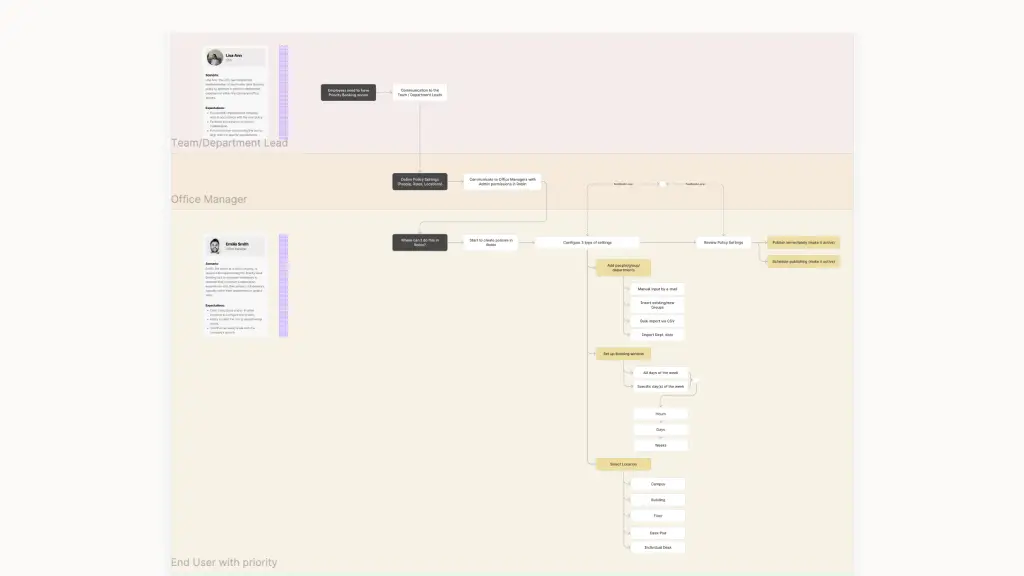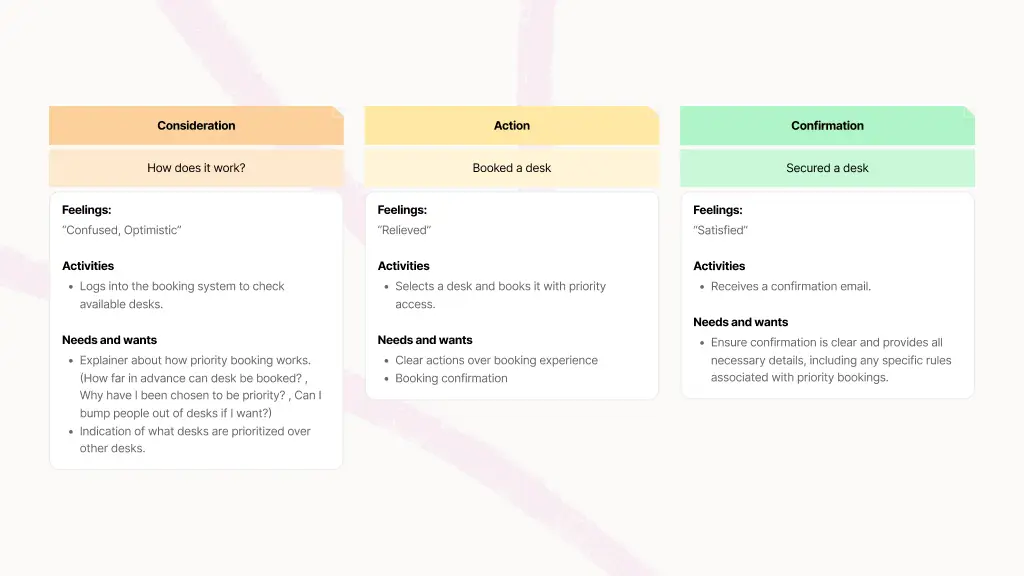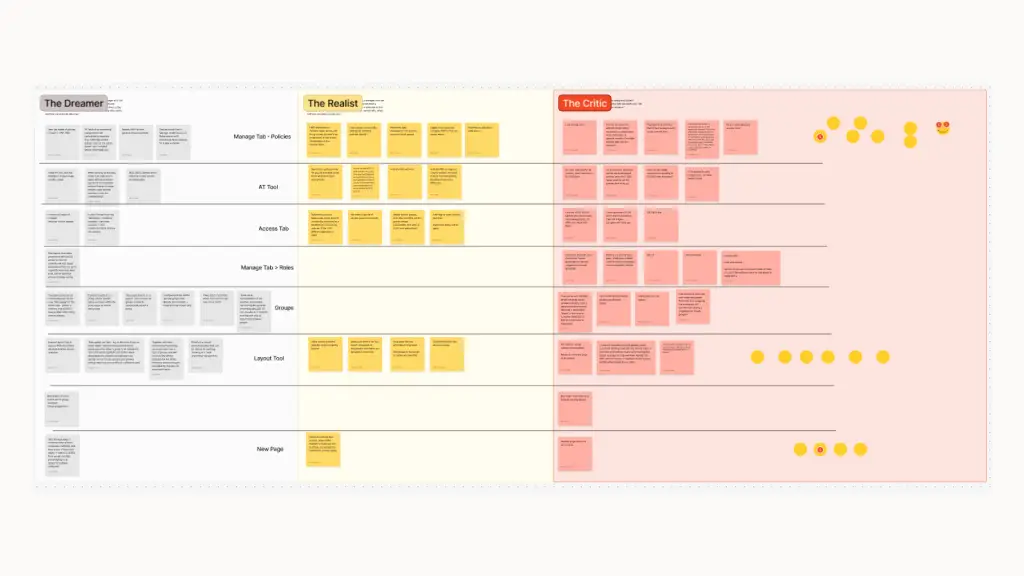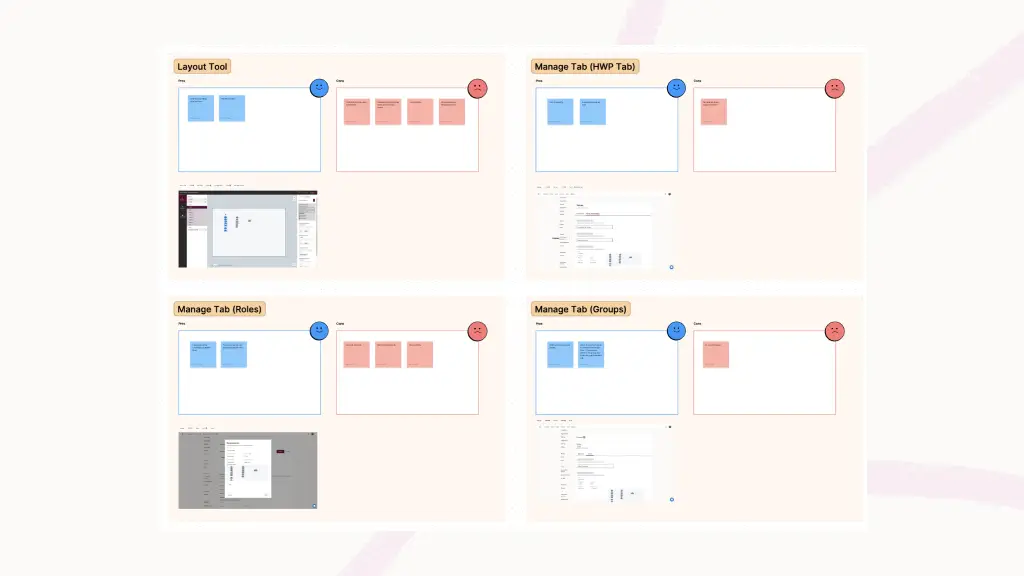PDB Disc
Most desk booking systems treat everyone the same. But in hybrid work, that doesn’t work. Some teams need to sit together. Others need access earlier. This exploration shows how we built a flexible priority system that gives the right people access at the right time without adding complexity.
Problem:
Most desk booking systems treat everyone the same. You get access based on fixed rules, usually tied to your core office days and that’s it. But in real life, teams don’t work like that. People collaborate across schedules. Desks sit empty even when someone else could’ve used them. And some teams, like Product or Legal, need to sit together or need access to specific areas.
There was no way to give certain people priority without creating extra admin work or confusing users. The system needed to be smarter. It had to give teams access to the right desks at the right time, without breaking the existing structure. It also had to work across all edge cases like rotating shifts, mixed contracts, and limited desk availability.
Teams needed a way to sit near each other when it mattered. And admins needed control over how and when that happened.
RESEARCH:
To understand what people actually needed from priority desk booking, I interviewed users from companies like Disney and Riot Games. I also reviewed what similar tools offer and where they fall short.

The research showed that people want the option to book desks on non core days if there’s space left. Some teams need exclusive access on certain days or in specific areas. Hybrid workers expect more flexibility than fully remote staff. And everyone wants to clearly understand when they can book and why.

Mapping the user journey wasn’t easy. This feature depends on desk inventory, pass rules, user roles, and team policies, it touches a lot of moving parts.

To make sense of it, I used the Walt Disney method. First, we looked at it as the Dreamer, asking what the ideal booking experience would feel like. Then as the Realist, we focused on what we could actually build with our current system. Finally, as the Critic, we questioned where things might break or confuse people.

Metrics:
The goal is to make sure the system isn’t just flexible on paper, but actually helping people book the desks they need, when they need them. As part of the discovery, we defined the key metrics we want to track once the feature goes live. These include overall adoption, desk utilisation, and booking lead time.
Early feedback looks promising, and we’ll keep using real usage data to guide future improvements.
OUTCOME:
The final solution gives admins full control over who can book, when, and where. They can set booking rules based on teams, roles, or working patterns. For example, a product team can get early access to a specific area on Mondays and Wednesdays. Hybrid workers can book desks up to three weeks in advance, while remote staff might get access 24 hours before. These rules apply to people, not just desks, making the system flexible without being confusing.
From the user side, the experience is clear. When someone opens the booking tool, they can immediately see if they have priority and when their window opens. There’s no guessing or hidden logic.
Ready to learn more – Check out this feature overview


